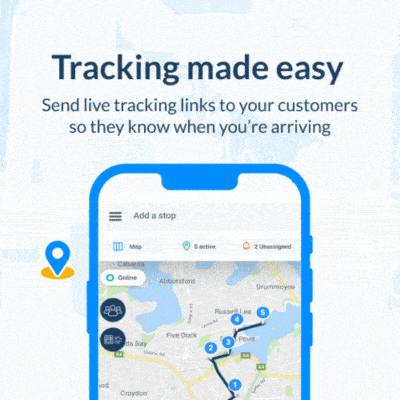Uber Freight’s research shows that up to 35% of all miles driven by trucks on US roads are hauling empty loads. It highlights that this amount shows a lot of time and fuel wasted on empty trips.
A recent release by the company shows that the freight industry could cut empty miles by up to 64% with better network optimization.
Challenges in reducing empty miles
Uber Freight highlights some key challenges business face in the industry:
- Imbalance in logistics: Many businesses face challenges with uneven pickups and deliveries across the US.
- Lack of visibility: Small or private carriers often lack tools to see available loads, making route optimization difficult.
- Fuel efficiency issues: Without proper tools, carriers struggle to create fuel-efficient routes and pair loads effectively.
- Need for better tools: Both shippers and carriers require a simple, affordable optimization tool that offers wide network visibility.
How did Uber Freight conquer empty miles?
The company’s data scientists recently analyzed a year’s worth of miles driven on its brokerage platform to find out where and how empty miles happen in its network.
The Uber Freight team discovered that combining loads reduces empty miles between drop-off and pickup.
It also found that only 3% of Uber Freight’s brokerage loads are booked this way, so most loads in the network aren’t using this method to improve empty mile efficiency.
Uber finds a solution for empty miles
Using the transportation technology at its disposal, the business shifted focus to instead analyze data around load updates such as dispatch time and pickup time, along with GPS pings it would get from its carriers through its app to estimate the empty miles driven in the entire network.
- Initial GPS data: For each trip, the business used the first GPS signal detected 30 minutes before dispatch.
- Exclusion of short trips: Uber Freight excluded trips with 10 or fewer empty miles to avoid including cases where carriers might already be near the facility.
- Adjusting distance: The company added 20% to the geographic distance from dispatch to pickup to account for road networks, as the driving route is longer than a straight line.
- Accurate mileage calculation: For total miles, the company used PC Miler, which accurately measures truck routes.
Reduction in empty miles achieved in 2024
Uber Freight observed that empty miles on its digital brokerage platform were 25% of total miles in 2023, compared to 22% in 2024. This means an estimated reduction of 4 million empty miles.
NOW READ: Route optimization: Industry expert weighs in on gig delivery dilemmas
Photo Credit: Uber Freight
Share this article
About the author
Sharl is a qualified journalist. He has over 10 years’ experience in the media industry, including positions as an editor of a magazine and Business Editor of a daily newspaper. Sharl also has experience in logistics specifically operations, where he worked with global food aid organisations distributing food into Africa. Sharl enjoys writing business stories and human interest pieces.













